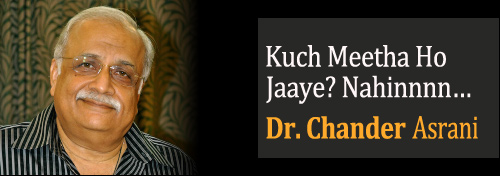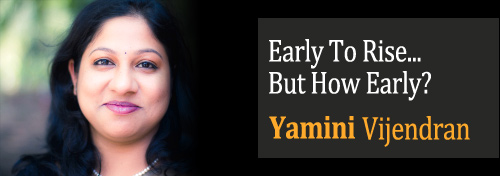Kuch Meetha Ho Jaaye? Nahinnnnnnnn…
TOI, 27th July, Pg 17 carried an article on Nutrition, “Don’t offer chocolate as prize to kids”.
Hope and pray our most respected Bollywood Moghul reads TOI and puts his responsibility before the sponsorship fee!
36 year of witnessing the massive shift in Indian consumption of TV influenced products – noodles, chips, chocolates – it saddens me that even those from lower socio-economic strata are wasting precious money for all these products. In 80s, a child would be given a candy for taking one shot of vaccine; today it is a chocolate. Then if child is a brat or parents are loaded the chocolate bar is larger.
The write-up I mentioned above talks of lack of nutritive products in a child’s daily diet and with commercials (falsely) claiming how a piece of processed food is as good as natural, does not help.
Agencies come up with newer gimmicks that kids (and most parents) follow – chocolate for passing – imagine weekly tests in most schools; then a chocolate for starting some thing new; a chocolate for anyone’s birthday at school; visitors come – more chocolates, etc. Celebrities and media have turned a simple act of eating a chocolate – into an important social occasion. Imagine the war careful mothers have to wage!
This brings us to the very important question of: Whither positive reinforcement.
Positive Reinforcement is a reward – verbal or materialistic – that is promised/given for a good/better performance. Positive Reinforcement can also be counter productive if given in excess or given at a wrong time.
There are parents who suspect that positive reinforcement has a harmful effect and kids always expect some reward. It is not true. By and large rewards do not have a harmful influence as far as motivation to perform a task better is concerned. At times, when rewards do have a negative influence, it can be attributed to one the following:
– Rewards are promised for behaviours already occurring adequately
– Rewards are not closely tied to a performance criterion
This can be avoided by using clear and specific criteria for reinforcement/reward.
Praise, and that too in front of others, has been identified as a particularly powerful method of positive reinforcement and helps children learn/behave & get disciplined. It is up to parents to use praise prudently and smartly so that performance continues even after praise is no longer forthcoming.
We live in a society where using positive reinforcement to motivate children is less familiar than using punishment and other methods of aversive control. Therefore, when someone proposes using positive reinforcement in a context where punishment is typically used, there is a tendency to compare positive reinforcement to bribery.
Is it akin to bribery?
Absolutely NOT!
The dictionary definition of bribe is “Something, such as money, offered or given to induce or influence a person to act dishonestly.”
Other than a situation wherein one parent giving money/chocolate, etc. to the child to hide something from the other parent, positive reinforcement cannot be termed bribery.
Praise is the most powerful reinforcement. It is sad that some parents don’t praise their children thinking it may spoil them and praise others, wrongly believing that competitiveness will make them perform better; on the other hand some parents are on the look out for catching bad behaviour of their child and reprimanding publicly rather than acknowledging their good behaviour.
Best is to adopt a rule of thumb in deploying praise. We must avoid using praise in a forced manner and instead praise ONLY when we think that the child has done something real well or at least better than before.
The praise must be sincere and child should value it. Be careful and neither withhold praise nor over do it.
& Meetha to bilkul NAHIN!!
[interactivebutton client_id=”580027691684″ prefill_text=”How about reading this post now?” cta_label=”COMMENT” cta_url=”https://www.parentous.com/2013/07/31/kuch-meetha-ho-jaaye-nahin-praising-children-motivating-kids/” button_text=”Share as an Interactive Post on Google+”]
Dr Chander Asrani, father to three daughters and grand father to one, is a post-graduate in Family Medicine. He has over 35 years in clinical practice, launched www.growingwell.com in 2000 and since then has been writing on various subjects. Know more about him at about.me/drasrani.


